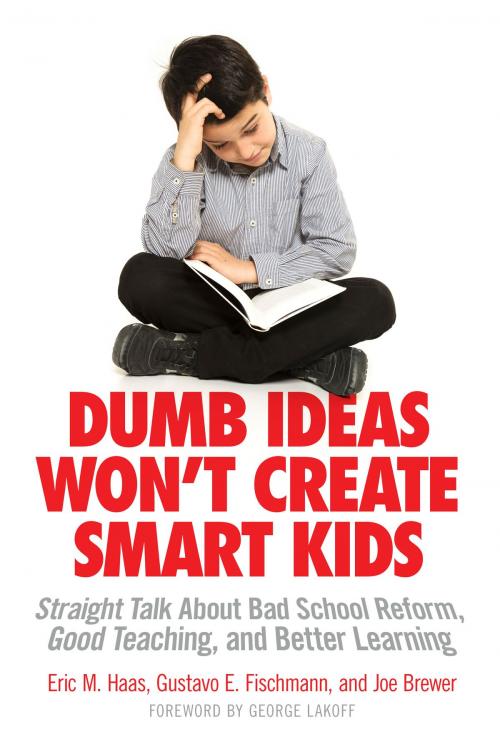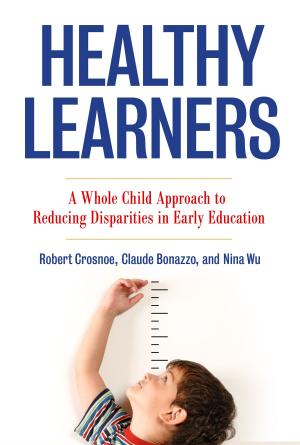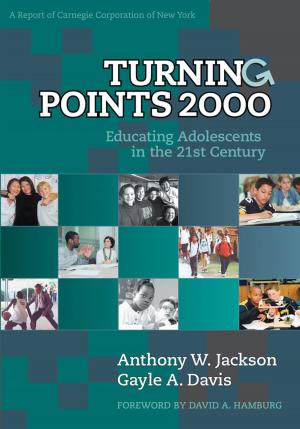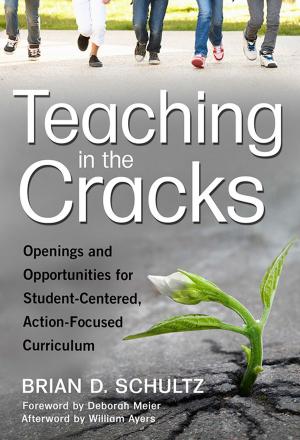Dumb Ideas Won't Create Smart Kids
Straight Talk About Bad School Reform, Good Teaching, and Better Learning
Nonfiction, Reference & Language, Education & Teaching, Educational Theory, Leadership, Educational Reform| Author: | Eric M. Haas, Gustavo E. Fischman, Joe Brewer | ISBN: | 9780807773215 |
| Publisher: | Teachers College Press | Publication: | December 15, 2009 |
| Imprint: | Language: | English |
| Author: | Eric M. Haas, Gustavo E. Fischman, Joe Brewer |
| ISBN: | 9780807773215 |
| Publisher: | Teachers College Press |
| Publication: | December 15, 2009 |
| Imprint: | |
| Language: | English |
If you want to actually do something about providing excellent education for every child in America, this is the book for you. Using insights from cognitive science, educational research, and the social sciences, the authors examine the compelling nature of four “dumb ideas” at the center of current education policy and practice:
- Simplifying knowledge helps students learn more and faster.
- Teaching and learning are a matter of proper transmission of good content.
- Homogenous environments ease learning.
- More standardized data and rigorous controls of our schooling will solve all our problems.
The authors then present research that consistently shows why smart K–12 education will not be achieved by current policies and practices, such as high-stakes standardized tests, homogenous grouping, and abbreviated teacher preparation. This lively book offers solutions for changing the harmful disconnect between our goals and the means we employ to get there, including key “smart ideas” and a set of how-to actions that will lead to great schools for every child.
“This is an important book, perhaps the most important book you will read on the nature of education. It tells deep and vital truths.”
—From the Foreword by George Lakoff, Richard and Rhoda Goldman Distinguished Professor of Cognitive Science and Linguistics, University of California, Berkeley
“Too many popular ‘reforms’ of today are barreling forward across the country despite compelling evidence that they do not work as touted. Haas, Fischman, and Brewer offer exquisite analysis of the ideas and metaphors that lead our subconscious minds to view some ideas as more commonsensical than others, and other metaphors that hold much more promise for addressing inequities in education.”
—Kevin Kumashiro, author of Bad Teacher! How Blaming Teachers Distorts the Bigger Picture
“If you care about saving public education, read this book! It is filled with novel ideas about how our schools might be saved from those with inadequate and destructive ideas about the conduct of schooling in America.”
—David C. Berliner, Regents’ Professor Emeritus, Arizona State University
If you want to actually do something about providing excellent education for every child in America, this is the book for you. Using insights from cognitive science, educational research, and the social sciences, the authors examine the compelling nature of four “dumb ideas” at the center of current education policy and practice:
- Simplifying knowledge helps students learn more and faster.
- Teaching and learning are a matter of proper transmission of good content.
- Homogenous environments ease learning.
- More standardized data and rigorous controls of our schooling will solve all our problems.
The authors then present research that consistently shows why smart K–12 education will not be achieved by current policies and practices, such as high-stakes standardized tests, homogenous grouping, and abbreviated teacher preparation. This lively book offers solutions for changing the harmful disconnect between our goals and the means we employ to get there, including key “smart ideas” and a set of how-to actions that will lead to great schools for every child.
“This is an important book, perhaps the most important book you will read on the nature of education. It tells deep and vital truths.”
—From the Foreword by George Lakoff, Richard and Rhoda Goldman Distinguished Professor of Cognitive Science and Linguistics, University of California, Berkeley
“Too many popular ‘reforms’ of today are barreling forward across the country despite compelling evidence that they do not work as touted. Haas, Fischman, and Brewer offer exquisite analysis of the ideas and metaphors that lead our subconscious minds to view some ideas as more commonsensical than others, and other metaphors that hold much more promise for addressing inequities in education.”
—Kevin Kumashiro, author of Bad Teacher! How Blaming Teachers Distorts the Bigger Picture
“If you care about saving public education, read this book! It is filled with novel ideas about how our schools might be saved from those with inadequate and destructive ideas about the conduct of schooling in America.”
—David C. Berliner, Regents’ Professor Emeritus, Arizona State University















